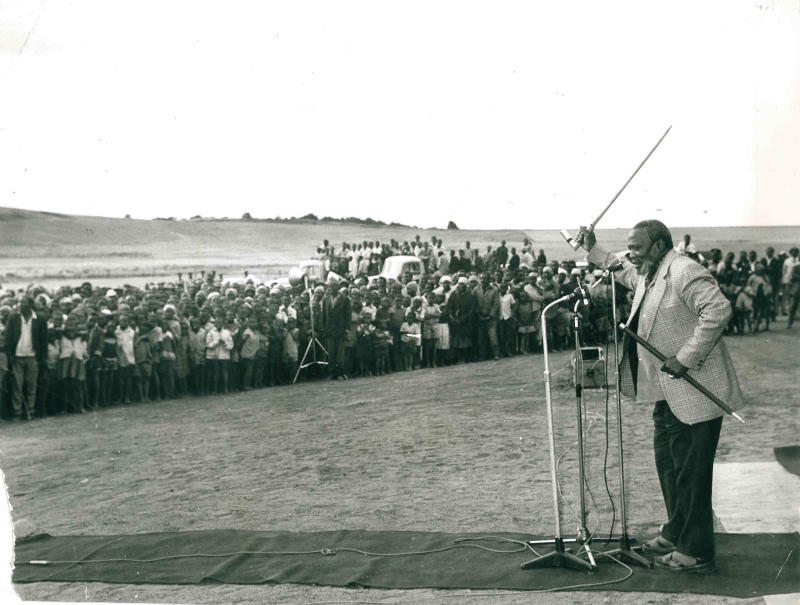×
The Standard e-Paper
Join Thousands Daily

President Jomo Kenyatta addresses a large rally at Tamayota settlement scheme in Molo area of Nakuru [File, Standard]
With the end of his tenure fast approaching, President Uhuru Kenyatta must be wondering why central Kenya is grumbling about his performance.